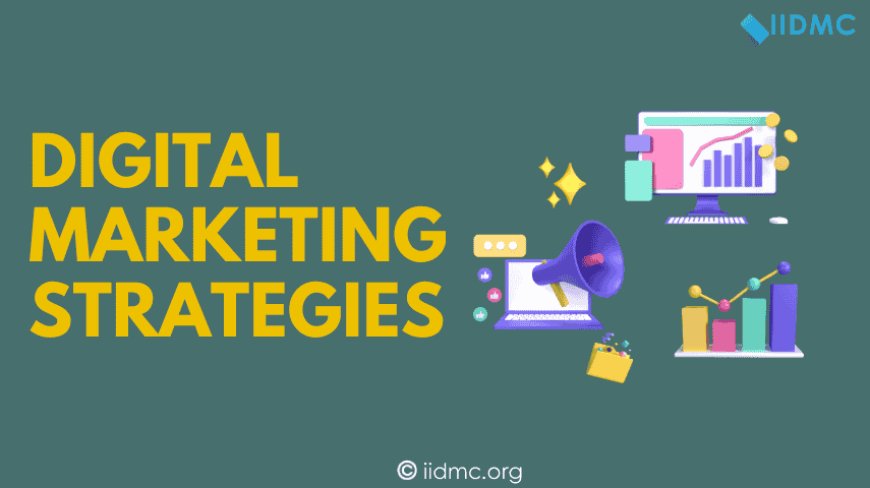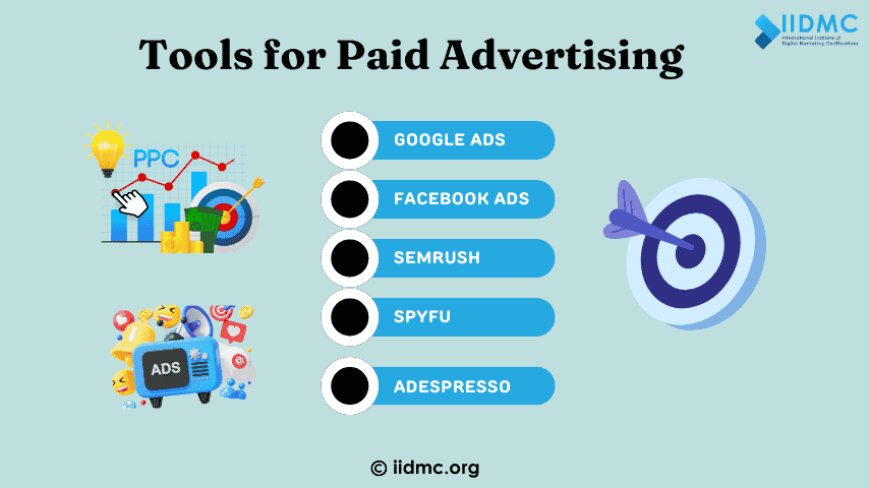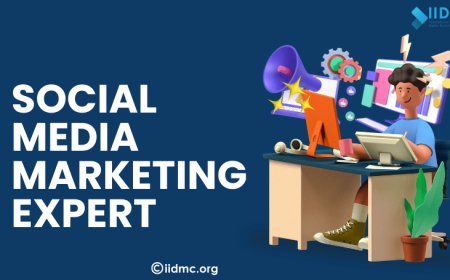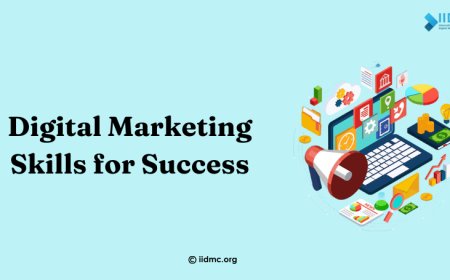Effective Digital Marketing Strategies
Learn effective digital marketing strategies to enhance your online presence, connect with your audience, and achieve success

Businesses need to use digital marketing to reach and connect with customers online. Digital marketing includes a variety of strategies that help businesses attract attention, build relationships, and increase sales. Whether you're running a small business or just learning about marketing, understanding the basics is important. Key strategies include knowing your audience, improving your website's search ranking, creating useful content, using social media, sending emails, and even paying for online ads.
Understanding Your Audience
The first step in any digital marketing strategy is understanding your target audience. It’s crucial to know who your customers are, what they need, and how they behave online. This information will help you create content, messaging, and campaigns that resonate with your audience. Use tools like customer surveys, social media insights, and web analytics to gather data about your audience's demographics, preferences, and pain points.
Search Engine Optimization (SEO)
SEO is one of the most important aspects of digital marketing, as it helps improve the visibility of your website in search engine results. A strong SEO strategy involves optimizing your website’s content, structure, and technical aspects to ensure that it ranks higher in search results. Key components of SEO include:
-
Keyword Research: Identifying the terms and phrases your audience is searching for and optimizing your content around those keywords.
-
On-Page SEO: This includes optimizing content such as title tags, headings, meta descriptions, and URLs to improve search engine rankings.
-
Content Creation: Consistently publishing high-quality, informative, and engaging content that answers your audience’s questions and addresses their needs.
-
Link Building: Gaining backlinks from other credible websites to increase your domain authority and improve your search ranking.
Content Marketing
Content marketing is a strategy that focuses on creating valuable and relevant content to attract and engage your target audience. The goal is to build trust and authority within your industry, which can ultimately lead to more conversions. Content marketing can take various forms, including blogs, videos, infographics, podcasts, and social media posts.
The key to successful content marketing is providing value. Ensure your content addresses the pain points of your audience, answers their questions, and offers solutions. Regularly updating your content will also keep it fresh and relevant, improving your SEO efforts.
Tools for Content Marketing:
-
HubSpot: For content creation, scheduling, and performance tracking.
-
Canva: To create eye-catching graphics and visual content.
-
BuzzSumo: To research trending topics and find content ideas.
-
WordPress: A popular platform for creating and managing blogs.
-
Grammarly: For proofreading and improving content quality.
-
ChatGPT: To assist in content creation by generating ideas, drafting articles, and enhancing writing.
-
Gemini: Google's AI tool to help generate high-quality, relevant content tailored to your audience's needs.
-
Perplexity: An AI-powered tool for generating ideas and answering questions, helping you create more relevant content.
Social Media Marketing
Social media is a powerful tool for building brand awareness, engaging with customers, and driving traffic to your website. Platforms like Facebook, Instagram, LinkedIn, and Twitter provide businesses with the opportunity to connect directly with their audience in real time.
Effective social media marketing involves sharing content that resonates with your audience, interacting with followers, running targeted ads, and using analytics to track performance. Each social media platform has its own unique audience, so it’s important to tailor your strategy to each platform’s strengths and audience preferences.
Tools for Social Media Marketing:
-
Hootsuite: For scheduling and managing posts across multiple platforms.
-
Buffer: To track and optimize social media performance.
-
Sprout Social: For social media listening and engagement.
-
Canva: To design social media graphics.
-
Google Analytics: To monitor traffic from social media platforms.
Email Marketing
Email marketing remains one of the most effective channels for driving conversions. It allows businesses to communicate directly with their audience and nurture leads through personalized, targeted messages. Building an email list through sign-ups, downloads, or offers is crucial for success.
Segmenting your email list based on user behavior, interests, or demographics allows you to send highly relevant content and promotions to each group. Automated email campaigns, like welcome emails, abandoned cart reminders, and special offers, can help keep your audience engaged and increase sales.
Tools for Email Marketing:
-
Mailchimp: For email list management, automation, and campaign tracking.
-
Constant Contact: For building and sending personalized email campaigns.
-
ActiveCampaign: For advanced automation and email segmentation.
-
ConvertKit: A great tool for creators and bloggers focused on email marketing.
-
AWeber: For email automation and tracking engagement.
Paid Advertising (PPC)
Paid advertising, or Pay-Per-Click (PPC), involves paying for ad placement on search engines, social media platforms, and websites. PPC campaigns can be highly effective when done correctly, driving targeted traffic to your website and increasing conversions.
Google Ads, Facebook Ads, and Instagram Ads are popular platforms for paid advertising. A successful PPC campaign involves selecting the right keywords, crafting compelling ad copy, optimizing landing pages, and continuously monitoring performance to ensure a positive ROI.
Tools for Paid Advertising:
-
Google Ads: To run PPC campaigns on Google search and display networks.
-
Facebook Ads Manager: To create and manage PPC campaigns on Facebook and Instagram.
-
SEMrush: For keyword research and PPC campaign optimization.
-
SpyFu: For competitor analysis and keyword tracking.
-
AdEspresso: For managing and optimizing Facebook and Instagram ad campaigns.

Influencer Marketing
Influencer marketing has grown in popularity as brands look to leverage the trust and reach that influencers have with their followers. By partnering with influencers in your industry, you can tap into new audiences and build credibility for your brand.
When selecting influencers to work with, it’s essential to find those who align with your brand values and have an engaged following. Influencers can promote your products or services through posts, videos, or stories, helping to boost your brand’s visibility and drive traffic to your website.
Analytics and Data-Driven Decision Making
In digital marketing, tracking performance and analyzing data is critical to refining your strategy and improving results. By using tools like Google Analytics, social media insights, and email campaign reports, you can track key metrics such as website traffic, conversion rates, and ROI.
Data-driven decision-making allows you to optimize your campaigns, identify what’s working, and adjust strategies to improve overall performance. Regular analysis ensures that your marketing efforts are aligned with your business goals and objectives.
Conversion Rate Optimization (CRO)
Once you’ve driven traffic to your website, the next step is converting that traffic into customers. Conversion Rate Optimization (CRO) involves improving your website's user experience to increase the likelihood of a visitor completing a desired action, such as making a purchase, signing up for a newsletter, or downloading a resource.
CRO strategies include optimizing your website’s design, improving call-to-action buttons, simplifying the checkout process, and testing different page layouts. The goal is to make it as easy and seamless as possible for visitors to take action.
Local SEO and Google My Business
For businesses with a physical location or those serving specific regions, local SEO is crucial. Local SEO involves optimizing your online presence to attract customers in your geographical area. One of the most important tools for local SEO is Google My Business, where you can create a profile for your business that appears in local search results.
Encourage customers to leave reviews, update your business hours, and ensure your contact information is accurate to improve your local rankings and attract more local traffic.
If you're interested in diving deeper into digital marketing and building a successful career in this field, consider taking a course to gain practical knowledge and hands-on experience. Additionally, earning certifications from IIDMC can help you demonstrate your expertise and enhance your credibility as a digital marketer. These resources will provide you with the tools and skills needed to excel in the ever-evolving world of digital marketing.




























